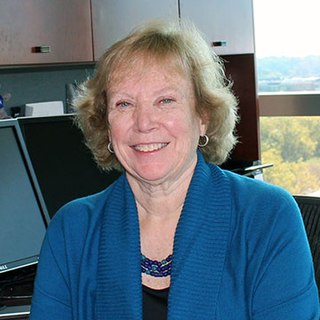
Louise Annette Brinton is an American epidemiologist. She was a senior investigator, Chief of the Hormonal and Reproductive Epidemiology Branch, and the first Scientific Advisor for International Activities of the National Cancer Institute Division of Cancer Epidemiology and Genetics.

Xiaohong Rose Yang is an American biomedical scientist researching the genetics of dysplastic nevus syndrome and chordoma, and etiologic heterogeneity of breast cancer. She is a senior investigator at the National Cancer Institute. Yang leads breast cancer studies in mainland China, Hong Kong, and Malaysia.

Martha S. Linet is an American physician epidemiologist. She is a scientist emerita at the National Cancer Institute (NCI). Linet retired in January 2020 after 33 years at NCI. She was a senior investigator and branch chief in the NCI radiation epidemiology branch. Linet specialized in epidemiology, the etiology of pediatric and adult leukemia, lymphoma, and brain tumors, as well as the health effects of ionizing and non-ionizing radiation and benzene exposure.

Ruth A. Kleinerman is an American epidemiologist specialized in retinoblastoma. Kleinerman worked at the National Cancer Institute (NCI) from 1979 to 2019 where she served as a staff scientist and deputy chief of the Radiation Epidemiology Branch.

Rachael Zoe Stolzenberg-Solomon is an American epidemiologist and dietitian. She is a senior investigator and head of the metabolic epidemiology branch at the National Cancer Institute.

Debra Toby Silverman is an American biostatistician and epidemiologist specialized in bladder cancer epidemiology and the carcinogenicity of diesel exhaust. Silverman is the chief of the occupational and environmental epidemiology branch at the National Cancer Institute.

Shelia Hoar Zahm is an American cancer epidemiologist specialized in pesticides and cancer, the etiology of non-Hodgkin lymphoma, and occupational cancer among women. She was deputy director of the National Cancer Institute's division of cancer epidemiology and genetics from 1998 to 2011.
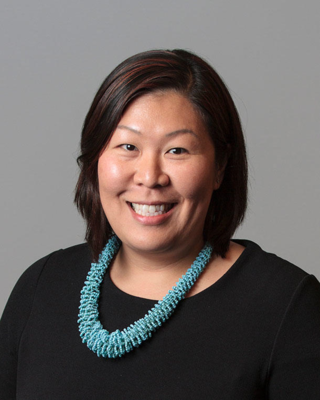
Hannah P. Yang is an American cancer epidemiologist who is a staff scientist and associate director of scientific operations in the National Cancer Institute's division of cancer epidemiology and genetics.
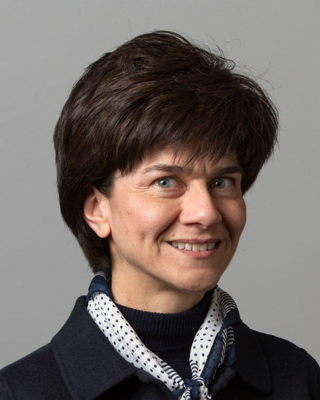
Maria Teresa Landi is an Italian epidemiologist and oncologist who researches genetic and environmental determinants of lung cancer and melanoma. At the National Cancer Institute, she is a senior investigator in the integrative tumor epidemiology branch and a senior advisor for genomic epidemiology. Landi is an associate professor of epidemiology at the Johns Hopkins Bloomberg School of Public Health.

Alisa Miriam Goldstein is an American genetic epidemiologist who researches the genetic and environmental causes of cancer. She is a senior investigator at the National Cancer Institute.

Lisa J. Mirabello is an American medical geneticist who researches genetic susceptibility to pediatric cancer and the genomics of HPV carcinogenicity. She is a senior investigator in the clinical genetics branch at the National Cancer Institute.
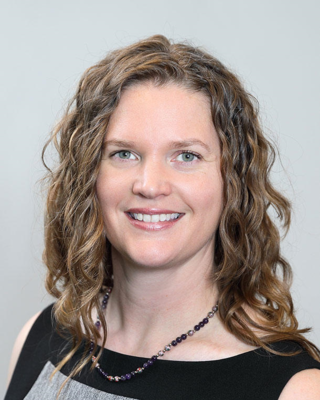
Jill E. Koshiol is an American cancer epidemiologist who researches the risk factors of hepatobiliary cancers. She is a senior investigator in the infections and immunoepidemiology branch at the National Cancer Institute.

Aimée Rebecca Kreimer is an American cancer epidemiologist who researches the etiology and prevention of human papillomavirus infection (HPV) and cancer prevention. She is a senior investigator in the infections and immunoepidemiology branch at the National Cancer Institute.
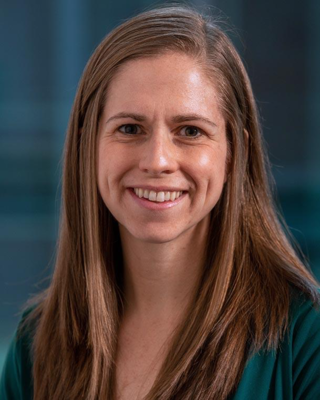
Meredith Sarah Shiels is an American cancer epidemiologist who researches cancer risks in people with HIV. She is a senior investigator at the National Cancer Institute.

Stella Koutros is an American cancer epidemiologist who researches the occupational exposures as risk factors for cancer. She is an investigator in the occupational and environmental epidemiology branch at the National Cancer Institute.
María Constanza Camargo Bohórquez is a Colombian cancer epidemiologist who researches the Epstein–Barr virus and gastric carcinogenesis. She is an investigator in the metabolic epidemiology branch at the National Cancer Institute.

Nan Hu is a Chinese physician-scientist, molecular geneticist, and cancer epidemiologist who researches gastrointestinal cancers. She is a staff scientist in the metabolic epidemiology branch at the National Cancer Institute.
Wen-Yi Huang is a cancer epidemiologist who primarily researches colorectal and prostate tumors. She is a staff scientist in the metabolic epidemiology branch at the National Cancer Institute.
Sonja Ingrid Berndt is an American pharmacologist and cancer epidemiologist who researches non-Hodgkin lymphoma, prostate cancer, and anthropometric traits that are cancer risk factors. She is a senior investigator in the occupational and environmental epidemiology branch at the National Cancer Institute.
Qing Lan is a Chinese physician-scientist and molecular epidemiologist who researches indoor air pollution, lung cancer, and occupational exposures. She is a senior investigator in the occupational and environmental epidemiology branch at the National Cancer Institute.
















